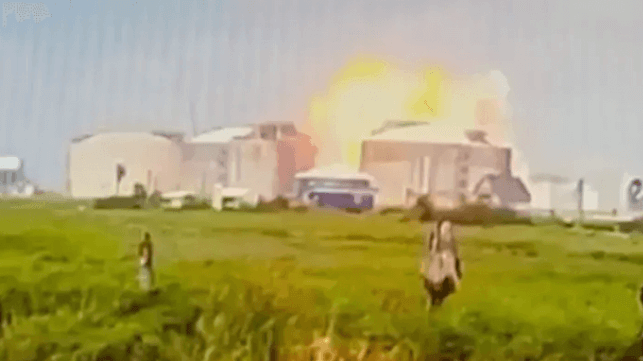Blast Leaves Freeport LNG Partially Shut Through Late 2022

The outage at the Freeport LNG plant after last week's explosion will be much longer than originally believed, the firm announced Tuesday.
On June 8, an LNG transfer pipe in an export pipe rack ruptured, releasing a cloud of methane gas. The natural gas exploded in a fireball, which was safely contained within the facility's perimeter, the firm said. It sparked a fire but generating no significant pollution or harmful emissions. No injuries were reported, and none of the adjacent high-value facilities - the storage tanks, liquefaction trains, docks or other equipment - were damaged.
The suspected source of the blast was a ruptured export pipeline, and investigators believe that it likely burst because of overpressure inside the line. The underlying cause of the overpressure incident is under investigation.
Freeport LNG said that there was no risk to the community at any point during the incident, and the fire was out within 40 minutes.
However, it will take much longer to restore operations at Freeport LNG, which handles nearly 20 percent of America's LNG exports. Though the operator's initial expectation was that it would take less than a month to get the plant back up and running, Freeport LNG now says that it does not expect to resume full plant operations until late 2022. A partial restart should be possible within 90 days, once safety and security are assured, the firm said.
The outage has geopolitical ramifications. The majority of U.S. LNG goes to supply the European market, where America's NATO allies are attempting to wean their economies off pipeline gas from Russia in order to undercut the Russian invasion of Ukraine. Analysts believe that the outage will take more than a dozen cargoes off the market this summer alone, according to Reuters, and a prolonged partial shutdown means that there will be even less American gas to replenish Europe's storage before winter.

that matters most
Get the latest maritime news delivered to your inbox daily.
U.S. consumers stand to benefit: According to Rob Thummel, the managing director at Tortoise Capital, the U.S. market will now have an oversupply of two billion cubic feet per day - about two percent of total production. As traders priced in this reality, Henry Hub natural gas futures shed six percent on the day of the blast, then lost another 16 percent Tuesday on news of the extended shutdown. Even after these price drops, natural gas is still about twice as expensive in the United States as it was at the end of 2021, reflecting an ultra-tight global market.
"Freeport LNG is mindful of the impact this incident and our suspension of operations has on our personnel, our surrounding community, and the domestic and international gas and LNG markets," the company said in a statement.
